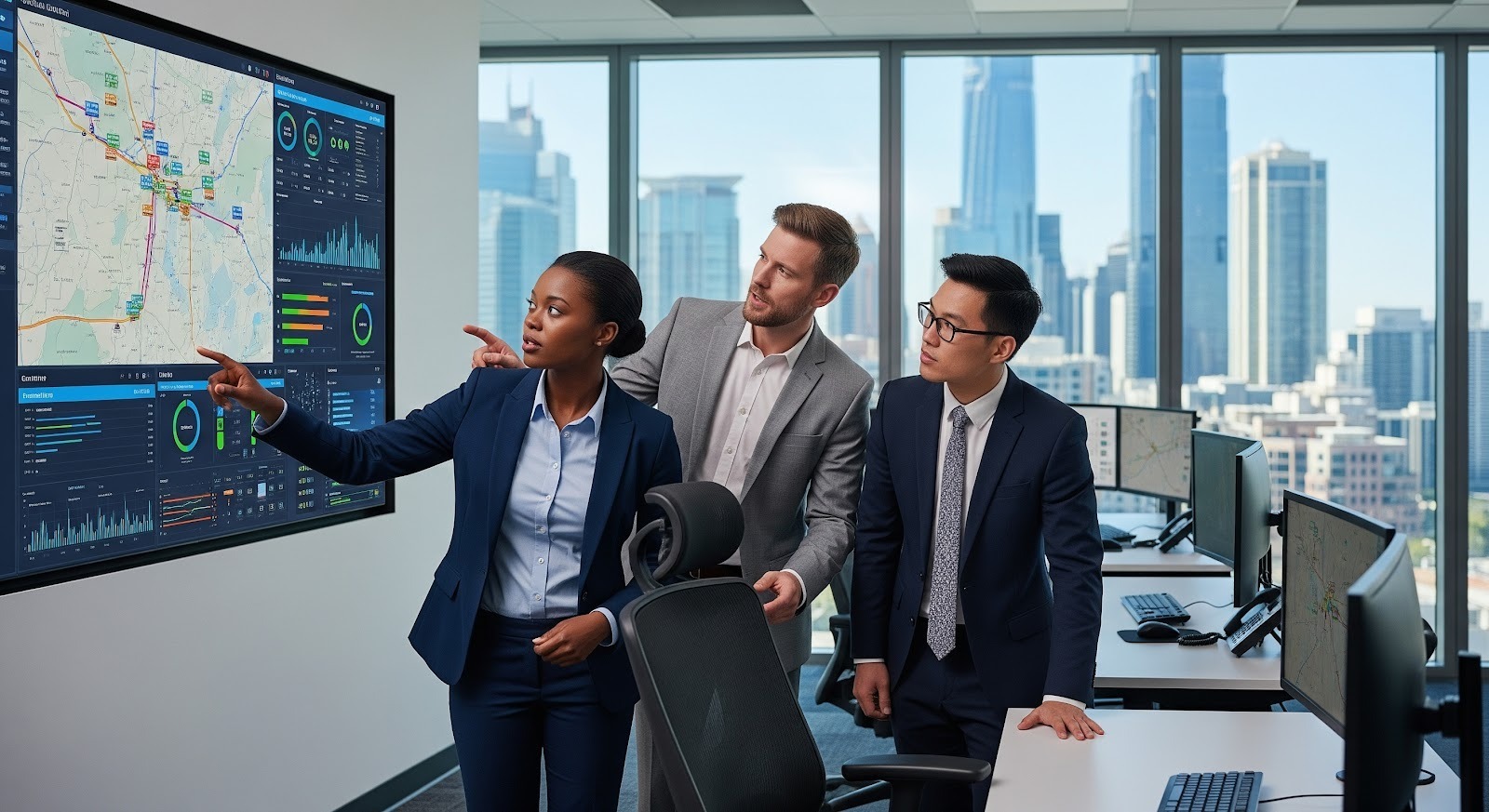Commercial Fleet Management: Strategies, Tools & Tips
Commercial fleet management plays a vital role in keeping businesses running smoothly, especially in industries like transportation, logistics, and...
Keep an eye on the road
Simplify your driver's routine
For efficient decision making
Ensure the compliance of your fleet
Simplify the daily life of your drivers
Maximize the value of your data
Unparalleled monitoring of your assets
The friendly competition that pays off
Planning powered by data
Exceed your customers' expectations
Provide better service to your users
Maximize the satisfaction of your citizens
Simplify your daily life on the construction site
Facilitate the electrification of your fleet
Our experts meet your needs
Easily meet the standards
Improve the safety of your drivers
Protect your data and your fleet
2 min read
![]() Anthony Mainville
May 22, 2024 10:24:54 AM
Anthony Mainville
May 22, 2024 10:24:54 AM

Las Vegas, May 21, 2024 – The ACT Expo 2024 featured a significant panel discussion on leveraging AI and machine learning to enhance fleet performance. The session underscored the importance of implementing AI technologies to optimize fleet operations and infrastructure planning, stressing the necessity for fleets to begin this journey promptly.
The discussion began with an exploration of how AI can provide detailed insights into fleet operations that would be otherwise unattainable. For instance, in Rhode Island, AI-enabled scheduling allowed for fitting 1.8 megawatts of charging capacity behind a 1-megawatt site connection. This approach avoided infrastructure upgrades, saving time and money for customers by optimizing on-site charging schedules and switching to backup generators during power outages.
Another highlight was the potential of AI to help utilities avoid costly and time-consuming upgrades. By understanding fleet requirements in real-time, AI can bridge gaps between customer-side and utility-side needs. The discussion emphasized the substantial savings in time and money that can be achieved by implementing AI-driven solutions, particularly in avoiding infrastructure bottlenecks that currently hinder the transition to cleaner fleets.
The panel also discussed the development of digital twins for electric grids. A digital twin offers a complete digital map of the grid, enabling utilities to better plan for the integration of electric trucks and buses. This technology is crucial for identifying and addressing constraints within the grid, ensuring that the necessary infrastructure is in place to support the growing demand for electric vehicle charging.
Load management and flexible connections were identified as key areas where AI can significantly impact fleet operations. By managing when and how vehicles are charged, fleets can avoid peak demand charges and make the most efficient use of available grid capacity. This flexibility is vital for fleets that cannot move their operations but can adjust their charging schedules to optimize costs and grid impact.
The importance of involving drivers in the transition to electric vehicles was also highlighted. Training and familiarizing drivers with new technologies can reduce anxiety and improve the overall success of electrification projects. This human element is critical in ensuring a smooth transition and maximizing the benefits of AI and advanced charging technologies.
The panel concluded with a call to action for fleets to start implementing pilot projects and integrating AI solutions as soon as possible. The insights gained from these early initiatives will be invaluable in scaling up operations and achieving long-term sustainability goals. The message was clear: the time to start this transformative journey is now.
The ACT Expo 2024 panel on AI and machine learning showcased how these technologies can dramatically improve fleet management and infrastructure planning. The session highlighted the need for fleets to begin integrating these solutions immediately to realize cost savings, operational efficiency, and sustainability goals. By embracing AI and advanced technologies, fleets can optimize their charging schedules, avoid costly infrastructure upgrades, and enhance overall performance. The message was clear: the time to start this transformative journey is now.

Commercial fleet management plays a vital role in keeping businesses running smoothly, especially in industries like transportation, logistics, and...

In fleet management, fleet compliance services play a much bigger role than just checking a box. They’re about keeping your drivers safe, your...

Trucking has always come with its fair share of challenges, from road safety and liability issues to managing fleet efficiency. As the industry...